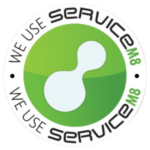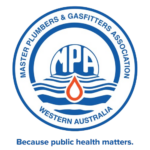

Your kitchen is the heart of your home, where meals are prepared, dishes are cleaned, and family moments are shared. However, some everyday habits could be damaging your plumbing without you even realizing it. Over time, these mistakes can lead to clogged drains, leaks, and costly repairs that disrupt your household.
To help you maintain a healthy, problem-free kitchen plumbing system, we’ve compiled a list of 10 common kitchen habits that could be harming your pipes—and what to do instead.
1. Pouring Grease, Oil, and Fat Down the Drain
Why It’s a Problem:
Grease, oil, and fat might seem like liquids when hot, but as they cool, they solidify and stick to the inside of your pipes, leading to stubborn clogs. Over time, this buildup can create blockages that slow drainage or cause complete pipe obstructions.
What to Do Instead:
- Let grease cool in a container (such as an old can or jar) and throw it in the trash.
- Wipe oily pans with a paper towel before washing them.
- Use a grease trap or collection container to dispose of large amounts of oil properly.
2. Flushing Food Scraps into the Sink
Why It’s a Problem:
Even if you have a garbage disposal, certain food scraps don’t break down easily and can clog pipes. Starchy foods like pasta and rice absorb water and expand, while fibrous foods like celery, onion skins, and potato peels can wrap around disposal blades, causing jams.
What to Do Instead:
- Scrape plates into the trash or compost bin before rinsing.
- Avoid putting egg shells, coffee grounds, bones, and fibrous vegetables in your garbage disposal.
- Use a drain strainer to catch food particles before they go down the drain.
3. Relying on Chemical Drain Cleaners Too Often
Why It’s a Problem:
It might be tempting to use store-bought chemical drain cleaners for a slow-draining sink, but these solutions are extremely harsh on your pipes. Over time, the chemicals can corrode pipes, leading to leaks or even pipe failure.
What to Do Instead:
- Use natural alternatives like baking soda and vinegar to clear minor clogs.
- Try a plunger or plumber’s snake for stubborn blockages.
- If the clog persists, call a professional plumber to safely remove it without damaging your plumbing system.
4. Overloading or Misusing Your Garbage Disposal
Why It’s a Problem:
Your garbage disposal isn’t a trash can—it’s designed for small food particles, not large chunks of food waste. Overloading it can cause jams, dull the blades, and even burn out the motor.
What to Do Instead:
- Feed food scraps slowly into the disposal, rather than dumping everything in at once.
- Avoid putting grease, eggshells, pasta, bones, coffee grounds, and stringy vegetables into the disposal.
- Run cold water while using the disposal to help flush food particles down the drain.
5. Ignoring a Leaky Faucet
Why It’s a Problem:
A leaky faucet might not seem like a big deal, but it wastes water, increases your utility bill, and could indicate a deeper plumbing issue. A constant drip can wear down your sink, cause water damage, and even lead to mold growth.
What to Do Instead:
- Fix leaks immediately by replacing worn-out washers or seals.
- If leaks persist, consult a plumber to inspect the faucet and plumbing connections.
- Regularly check for leaks under the sink to catch potential issues early.
6. Using Cold Water to Rinse Greasy Dishes
Why It’s a Problem:
Washing greasy pans and plates with cold water allows grease to harden and stick to your pipes, creating blockages over time. This is one of the leading causes of kitchen sink clogs.
What to Do Instead:
- Always use hot water and dish soap to help break down grease before it enters your pipes.
- Wipe excess grease off dishes with a paper towel before washing them.
- Install a grease trap if your household frequently cooks with oils and fats.
7. Ignoring Slow Drains
Why It’s a Problem:
A slow-draining sink is a warning sign of a developing clog. Ignoring it can lead to a complete blockage, which may require professional drain cleaning.
What to Do Instead:
- Try using a plunger or drain snake to remove small clogs before they worsen.
- Pour a mixture of hot water, baking soda, and vinegar down the drain to help clear minor buildup.
- If the issue persists, call a professional plumber to inspect the pipes.
8. Rinsing Non-Food Items Down the Sink
Why It’s a Problem:
Your kitchen sink is not a trash can! Flushing items like paper towels, napkins, plastic wrappers, or coffee filters down the sink can cause major plumbing blockages.
What to Do Instead:
- Dispose of non-food waste in the trash, not the sink.
- Educate family members on what should and shouldn’t go down the drain.
- Use a sink strainer to catch debris before it enters your pipes.
9. Neglecting Your Sink Strainer
Why It’s a Problem:
Your sink strainer is your first line of defense against food debris entering your pipes. If it’s clogged with gunk and not cleaned regularly, water will drain slowly, increasing the risk of buildup and clogs.
What to Do Instead:
- Clean your sink strainer at least once a week.
- If it’s damaged or worn out, replace it with a new one.
- Consider using a mesh strainer for added protection against small particles.
10. High Water Pressure Can Damage Pipes
Why It’s a Problem:
Excessively high water pressure puts stress on your pipes and fixtures, increasing the risk of leaks, worn-out seals, and even burst pipes over time.
What to Do Instead:
- Test your home’s water pressure using a pressure gauge.
- If the pressure is above 60 psi, install a pressure regulator.
- If you notice frequent leaks, consult a plumber to check for hidden pressure issues.
Final Thoughts: Protect Your Kitchen Plumbing!
Your kitchen plumbing is an essential part of your home, but small bad habits can lead to big, expensive problems. By avoiding these 10 common mistakes, you can keep your pipes flowing smoothly and prevent costly repairs.
Need a Professional Plumber? Call Steve Plumbs Today!
If you’re dealing with clogged drains, leaks, or garbage disposal issues, Steve is here to help! He provides fast, reliable, and affordable kitchen plumbing services. Contact Him Today


